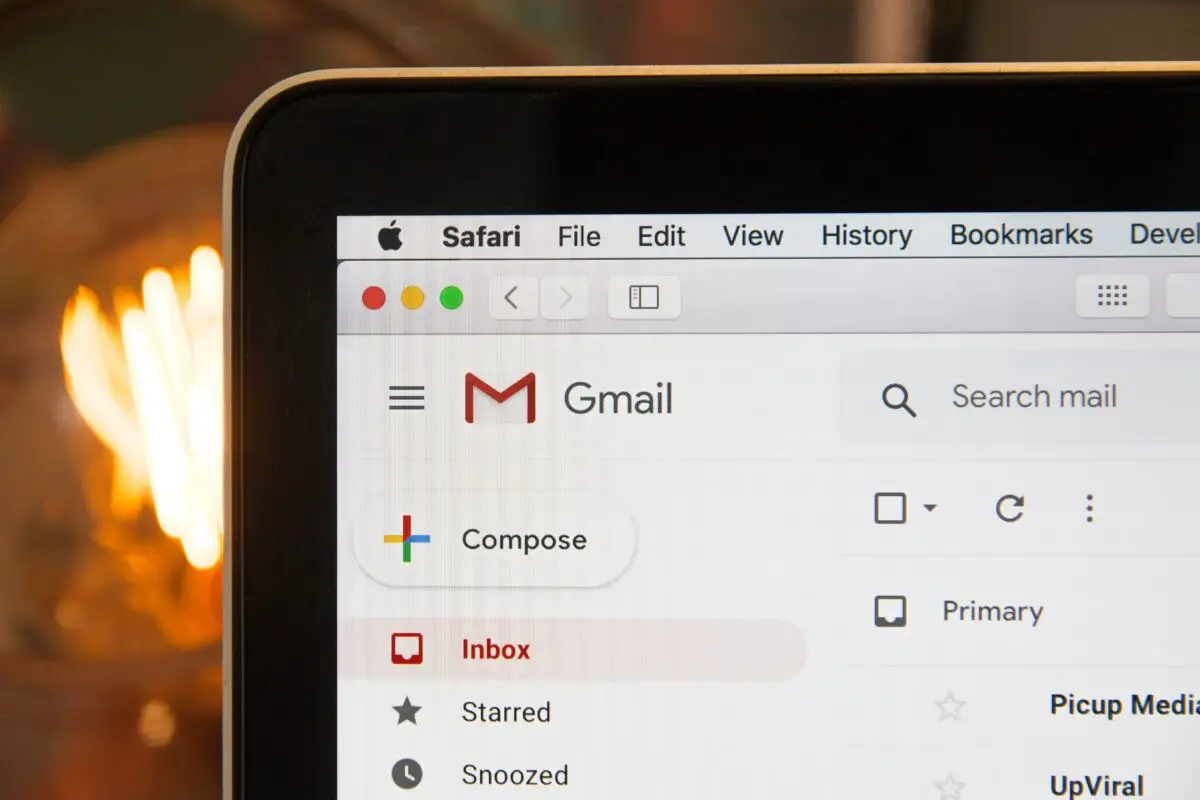You only get one chance to make a first impression with hiring managers. When you are competing with other candidates seeking to secure the same potential employer, mistakes and a poorly constructed CV will reflect badly. Unfortunately, many candidates research ‘what information should I include in a CV?’ and neglect considering ‘what not to include on your CV.’
With medium and large-sized enterprises using Applicant Tracking Systems (ATS) to screen candidates, you are unlikely to get through to the next stage or even have your CV viewed by a real person if you include specific information or make a writing mistake.
Here we reveal the details you should not have on your resume and provide helpful tips on what to include along the way.
Ten things not to include on your CV or resume
To ensure you do not put off a prospective employer, we highlight ten things that you should not do when writing your CV.
1. Personal details job seekers should not include on their CV
While a different rule applies in countries other than the United Kingdom, your CV and cover letter should not include a photo in the UK. If the job posting does not ask for a mugshot, don’t include one.
Discrimination
Further personal details you should not reveal to a hiring manager include your nationality, date of birth or age, and marital status. These details are not relevant to the application process and could even cause intentional or unintentional discrimination. Religion, race, and sexuality are further examples of what to leave off your CV and avoid issues surrounding discrimination.
Social media URLs
Links to your personal social media accounts are another item to leave off your CV unless it is directly related to the position, as might be the case for social media influencers.
However, some personal information and experiences can help you secure an interview and position with a company. It helps to consider how every element on your CV is relevant to the job or can demonstrate that you have transferable abilities and knowledge.
2. Grammatical errors and spelling mistakes

Bad grammar and spelling mistakes can destroy your chances of securing a job, especially if you say your skills include attention to detail. Annoying buzzwords and American English spelling can also turn off hiring managers.
Overly used buzzwords:
Team player - Reliable - Hardworking - Passionate
Seasoned - Authoritative - Track record - Results-driven
Clichés
Instead of using cliché phrases, provide quantifiable examples of when you used your skills and how this benefited the company or situation.
We recommend using spell-checking software, such as Grammarly, and asking a third person, such as a mentor or trusted friend, to proofread your resume. Remember, spell-checking software won’t pick up every writing error, so you can’t beat a second review conducted by a real human eye.
3. Gaps in employment history

It is crucial that you do not leave unexplained gaps in your professional history. These career gaps are likely to raise concern and doubt in the hiring manager’s mind.
It is best to address career gaps on your CV, but you don’t need to go into lots of detail. A simple statement such as ‘career break to handle family matters,’ ‘career break for travel,’ or ‘career break for study,’ including the dates, will suffice.
4. Company-specific jargon

Try to use simple language on your CV. Industry-specific jargon and terminology are best left off your CV. Concise statements work best because the hiring manager may have knowledge of their company’s industry, but they certainly won’t be experts.
Review the job description
A practical approach is to review the employer’s job description and mirror the phrases and terms used, on your CV. While you are examining job descriptions from the potential future employer, highlight the relevant experience and skills mentioned, such as proficiency with Microsoft Excel, and prioritise these on your CV.
Tailor your CV to the job
Our top advice for attracting the attention of the recruiter is to tailor every CV to focus on the job and organisation you are applying to work for.
5. An inappropriate email address

Employers hate to see an inappropriate email address, such as those that include a nickname. If your email address is unprofessional, consider setting up a new one, even if you only use it to allow a recruiter to contact you in relation to your job search.
The most professional format for your email address is forename.surname@emailprovider.com.
6. Employer references

In the past, it was customary to include employer references on your CV, but these are usually not required at this stage of the recruitment process. There is little benefit to adding them at this stage, and they take up valuable space, where you could be writing about relevant skills and quantifying them will facts, figures, recognition, and achievements.
If you have space, you can include the statement ‘references available upon request,’ but hiring managers take this as given, so you are not increasing your odds of being called in for a job interview.
7. Content that exceeds two pages
There is a lot of discussion around should I create a one page CV and whether it is acceptable or advisable to create a two-page or three-page CV. A one page CV is ideal for most employers because it makes it easy for them to identify if you are an ideal candidate.
If your CV is longer than a single page, you run the risk of the recruiter not seeing valuable information on the second page. However, our advice is not to delete valuable past roles or experiences if they will help you secure an interview for the position.
For example, a person applying to be a company director would need to demonstrate they have the skills and experience for the role. This might only be achievable by detailing several jobs and qualifications.
8. Poor formatting

Employers are more likely to read your CV on a computer screen, and while they may print it off later, it is best to have this fact in mind when writing your CV. A fancy font might add a creative flair to your CV, but will it make it hard for employers to read?
Font type
Our advice is to use the same font throughout your CV, and research shows that the easiest on the eyes are Arial and Calibri.
Font size and style
An appropriate font size is 11 or 12 pt, and it is best to limit your use of italics, bold text, and colour. Boxes and borders can disrupt the focus of the person reading your CV, so these are best avoided.
Bullet points
Use bullet points and concise statements to create an easily digestible CV that highlights your job skills and professional experience.
White space
White blank space is also crucial for readability, and it is also inadvisable to remove page margins. To recap, we do not recommend using a tiny font and using long paragraphs solely for the purpose of getting your CV into one page.
However, if the recruitment process requires you to submit your job application via a web form, this may strip out all your formatting, bold text, headings, and bullet points. When you apply for jobs this way, ensure your CV looks presentable with all of these formatting elements stripped away.
When applying for jobs and drafting your CV, we suggest using the present tense when describing your current role, personal pronouns, and resume action words. We created an extremely helpful article called words to use in a CV, covering powerful phrases to use and words not to use.
How to use present tense, pronouns, and action words
To use the present tense, you locate a situation in the present time using action phrasing that describe what is happening now. Pronouns are helpful in creating shorter, more precise, and more concise statements, and examples include ‘I,’ ‘they,’ ‘we,’ ‘you,’ ‘he,’ and ‘she.’
9. Misleading information

Hiring managers are experts in spotting information that does not stack up. They have a keen eye for inflated statements surrounding qualifications, job titles, salaries, and achievements.
An experienced hiring manager will conduct rigorous research and background checks on candidates. These range from Google searches to social media searches. Some employers even have access to specialist candidate checking services.
10. An overly long personal statement

An excessive personal statement and introduction can deter employers. Our guidance is to include one paragraph, including two or three sentences. It would help if you aimed to say who you are, why you are an excellent candidate and state your career aspirations.
You can read further on the topic in our article what makes a CV stand out.
Five more things you should not appear on your CV
- Salary information - these discussions come later on
- Outdated fonts - including serif and Times New Roman
- Your grades - if you are more than three years out of school
- Reasons for leaving your current employer - if needed, this discussion should occur during your interview
- Your boss’s name - unless you want the recruiter to contact them directly
- Negative comments about your former employer - which creates a less than optimistic tone
How to add your contact details to your CV
Your contact details are essential when applying for jobs, but you no longer need to include your home mailing address. As most recruitment conversations occur via email, video conferencing software, or over the telephone, this contact information alone will suffice.
You may want to consider stating your location as a region or city. You might also want to include whether you are prepared to commute to the office or only wish to work remotely, as this situation is becoming more commonplace in light of the current pandemic.
Job search resources
If you are looking to leave your current job and embark on a new challenge or progress your career, you will find the following resources helpful:
The CV don’ts that turn off hiring managers
Writing a CV and applying for jobs might appear straightforward at the outset, and you can easily ruin your chances if you don’t know what you are doing.
CV dos and don’ts:
- Don’t repeat everything you wrote in your covering letter or personal statement.
- Do expand on your comments by providing examples, evidence, figures, and recognition.
- Don’t use poor grammar.
- Do check your written content using a spell-checker and ask a trusted friend or mentor to proofread your content.
- Don’t get creative using images, photos, trendy job titles, and fancy fonts.
- Do use bullet points and a readable font such as Calibri or Arial.
- Don’t waffle on and create a three page CV.
- Do keep it simple and straightforward, with a single page CV often working best.
- Don’t include unnecessary personal details.
Struggling to get started with your CV?

If you need to update or create your CV from scratch, you can view our industry-focused CV templates and examples to give you inspiration and a starting point:
- Accounting CV template
- Agriculture CV template
- Arts CV template
- Automotive CV template
- Banking CV template
- Charity CV template
- Construction CV template
- Customer Services CV template
- Education CV template
- Engineering CV template
- Environmental CV template
- Facilities Management CV template
- Finance CV template
- Healthcare CV template
- Hospitality and Leisure CV template
- Human Resources (HR) CV template
- Information Technology (IT) CV template
- Leadership CV template
- Legal CV template
- Manufacturing CV template
- Marketing CV template
- Media CV template
- Office Administration CV template
- Personal Care CV template
- Professional Services CV template
- Public Sector CV template
- Retail CV template
- Sales CV template
- Science CV template
- Social Care CV template
- Telecommunications CV template
- Transportation and Logistics CV template
Need a CV template for a specific situation?
In the following articles we take you through creating a resume under a variety of different circumstances:
- Furlough CV template
- Graduate CV template
- Part-time CV template
- Redundancy CV template
- School leaver CV template
- CV template for temp work
- Career break CV
- Career change CV
CV Frequently Asked Questions
Here we answer the frequently asked questions about creating a CV.
Should I include hobbies on my CV?
If you have qualifications and work experience, you generally do not need to include hobbies and interests.
However, if your hobby is relevant to the job and can demonstrate transferable skills, it can provide an opportunity to showcase your abilities and create a compelling case for employment.
How much work history should I include on my CV?
If you have extensive work experience and have held many jobs, it may not serve your best interests to provide a complete history of your career.
You can limit your employment history to fifteen years and refrain from going into detail about junior or irrelevant roles.
What should I include on my CV if I don’t have work experience?
We recommend expanding upon degree modules, projects, and extracurricular activities where you can show skills use. Volunteering and charity work can also be a valuable resource, and you could write a career-focused blog to help demonstrate your knowledge.
If your work experience is short or irrelevant, consider adding an essential skills section and putting your education section ahead of any work history.
How should I add my education to my CV?
Your education should appear in reverse-chronological order, with your most recent qualification first. Include the subject, study dates, and grades if you are a recent graduate.
You don’t need to list every grade or subject for GCSEs. However, if GCSEs are your highest academic achievements, you may want to mention vital subjects, such as English and Maths.
What makes a CV stand out?
A personal statement that summarises your CV, of 150-200 words is a great way to stand out from other applicants.
Determine what your unique selling point (USP) is and provide evidence for your claims, which will help qualify you as an excellent applicant.


